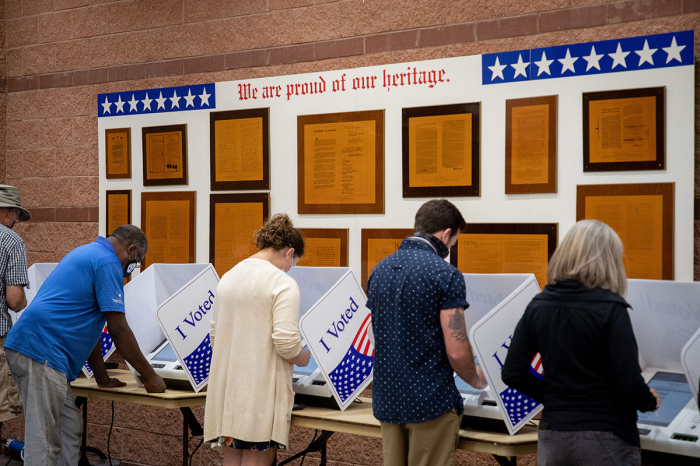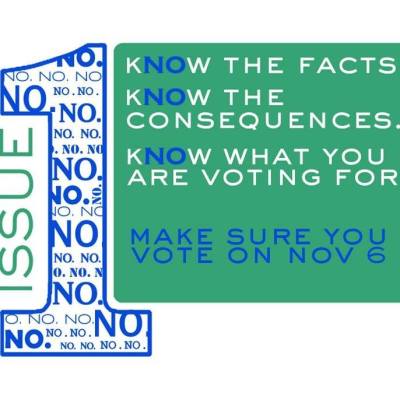171 religious leaders urge Ohioans to vote against 'wicked' Issue 1: It would lead to a rise in child abuse

Nearly 200 religious leaders are urging residents of Ohio to reject an upcoming ballot referendum that would establish a right to abortion in the state Constitution.
In a statement released last week and shared with The Christian Post, clergy representing 171 congregations in Ohio expressed their opposition to Issue 1, a ballot measure that will appear before voters in the Nov. 7 general election. As outlined in the letter, Issue 1 would amend the Ohio Constitution to declare that “Every individual has a right to make and carry out one’s own reproductive decisions, including but not limited to decisions on contraception, fertility treatment, continuing one’s own pregnancy, miscarriage care, and abortion.”
“An approved constitutional amendment becomes the highest law of the land and may bring sweeping changes with it,” the signatories warned. “If Issue 1 passes with a majority vote, existing laws on the books involving abortion, parental consent, and protection of minors will be considered legally invalid based on the ambiguous right of ‘reproductive decisions.’”

The clergy members described the language of Issue 1 as “deceptively vague and detrimental to the basic, inalienable, and GOD-given rights of parents and children,” warning that Issue 1 would “normalize child abuse and strip parents of their God-given roles to raise their own children.” They urged the people of Ohio to “protect life and ‘VOTE NO’ on Issue 1.”
“If this wicked Issue 1 passes, the Ohio Legislature will not be able to modify or regulate this language,” the letter added. “Further, this diabolical language cannot be challenged in Ohio’s Supreme Court since the court is obligated by law to abide by the State Constitution as approved by the voters of the state.”
While the religious leaders acknowledged that “the language of Issue 1 also says ‘Abortion may be prohibited after fetal viability,’” they expressed concern that “fetal viability would be determined by the subjective opinion of an abortionist doctor treating the pregnant woman.”
According to the signatories, “Abortion-providers like Planned Parenthood, who make a killing off the murder of children in the womb, will be protected because they can claim exclusive authority by defining viability and avoid any form of liability for terminating the lives of babies.”
The signatories elaborated on what they viewed as additional reasons to reject Issue 1. “Because of the indistinct language describing ‘reproductive decisions,’ Issue 1 will impose a blank check of abuses to occur on Ohio children including but not limited to: gender-selective abortions, trans-surgeries on minors, castration of children’s sexual organs, harvesting of body parts, and even cloning. In other words, Issue 1 will allow child abuse to exponentially increase without parents even knowing,” they wrote.
Issue 1 is one of several abortion-related referendums that have gone before voters since the U.S. Supreme Court determined in Dobbs v. Jackson Women’s Health Organization last year that the U.S. Constitution does not contain a right to abortion.
Last year, voters in California, Michigan and Vermont approved constitutional amendments establishing a right to abortion, while voters in Kentucky and Montana rejected ballot measures that would have established pro-life protections.
An attempt to raise the threshold required to pass a state constitutional amendment from a simple majority to 60% appeared before Ohio voters over the summer and failed. This means that it will only take the support of a bare majority of Ohioans to pass Issue 1.
Public opinion polling indicates majority support for Issue 1, with a survey conducted by Baldwin Wallace University from Oct. 9–11 finding that 58.2% of Ohioans would vote in favor of Issue 1, while 33.5% would reject it. The poll was based on responses collected from 569 registered voters with a margin of error of +/-4.5 percentage points.
A poll from Fallon Research & Communications conducted between Aug. 22–25 measured support for Issue 1 at 55% while pegging opposition to the ballot measure at 35%. The survey, based on responses from 501 registered voters, had a margin of error of +/- 4.37 percentage points.
Ohio is one of 25 states identified by the pro-life group Susan B. Anthony Pro-Life America that have passed laws prohibiting or restricting legal abortion following the Dobbs decision. Ohio has passed a six-week abortion ban that is currently tied up in court.
A legal analysis released by the office of Ohio’s Republican Attorney General Dave Yost suggests that the passage of Issue 1 would nullify the existing 20-week abortion ban in Ohio and lead to challenges to additional pro-life protections in the state. Such protections include a 24-hour waiting period to obtain an abortion as well as regulations on the abortion pill and taxpayer funding of abortions.
Ryan Foley is a reporter for The Christian Post. He can be reached at: [email protected]




























